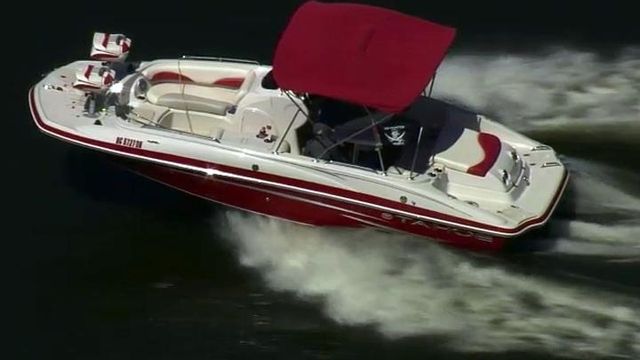Boat fees could rise to pay for dredging
Senate lawmakers are debating a bill that would raise fees on boats across the state to pay for dredging for coastal inlets.
Posted — UpdatedSenate lawmakers are debating a bill that would raise fees on boats across the state to pay for dredging for coastal inlets.
Sponsor Sen. Harry Brown, R-Onslow, said in a hearing Tuesday that the federal government used to pay for the dredging of shallow coastal inlets. But that money has dried up, and federal officials have made it clear it won't return.
The state has enough money for dredging only to cover the rest of 2013.
"We have more shallow draft inlets than any other state in the nation," Brown said. "Over time – and there are several inlets pretty close to this point now – those inlets start to fill in.
"When they fill in, the Coast Guard pulls the buoys that mark the channels," he warned. "If you want a dangerous situation, try to put yourself through an inlet that’s not marked, that’s shallow.
"It’s not a problem we can wait two or three years to handle," he said. "Every day that goes by, it gets worse."
The Division of Water Resources estimates keeping up with dredging will require a minimum of $6 million a year.
Under current law, owners of boats of all sizes pay a registration fee of $15 a year. Senate Bill 58 would raise the fees July 1, 2013, as follows:
- Boats under 14 feet – still $15 a year
- Boats 14 to 19 feet – $25 a year, a $10 increase
- Boats 20 to 25 feet – $50 a year, a $35 increase
- Boats 26 to 39 feet – $100 a year, an $85 increase
- Boats 40 feet and over – $150 a year, a $135 increase
Paddle-propelled vessels like kayaks, canoes and rowboats would continue to be exempt from the fee, as would small sailboats.
The measure also increases the boat titling fee from $20 to $30.
Half of the new revenue would be used for motorboat access needs and safety programs. The other half would go into a fund for dredging.
Brown said he's looked at every other revenue source he could find, but he's not willing to tap the transportation budget or the state Highway Trust Fund.
"Those dollars are scarce as it is," he said. "It almost has to be a user fee to find the money."
But critics of the bill say it's inaccurate to call it a user fee. That because all boat owners would have to pay it, even those whose boats never leave the state's freshwater lakes.
Sen. Austin Allran, R-Catawba, questioned the fairness of asking his foothills constituents to pay for dredging at the coast.
"This is putting a tax on boats that do not leave an area," Allran said. "Why are you not putting the tax on the boats of the people who live in the counties that are affected?"
Brown said those boat owners will pay the higher fees along with all other owners. He says many people from the Triangle and points west bring their boats to the coast every summer to use the waterways, and residents all over the state commonly help pay for projects that benefit one region more than another, like the Interstate 440 loop in Raleigh.
“You can argue that for all kinds of projects across this state,” Brown said. “I think if you start carving out who wins, who loses, I think you muddy the bill up."
Sen. Norm Sanderson, R-Pamlico, said the increase is too steep, especially in this economy.
"There’s a lot of folks in our state right now that find themselves boat-poor. They have more boat than they really want, but they’re stuck with it." Sanderson said, adding that some marina owners are even having problems collecting dock rents.
He noted that boat owners already pay gas tax when they fill up their boats, but only a fraction of a percent of that revenue is earmarked for waterway needs.
Brown argued that the average increase wouldn't even come close to the price of one tank of gas for a boat.
Jim Hardin with Grady-White Boats and Boats U.S. encouraged lawmakers to reconsider.
"We understand we need safe inlets," Hardin said, "but I think there are other ways to get a little piece of money here and there."
For example, Hardin said, diesel-powered boats don't currently pay road use taxes on their fuel. "We'd like to see a little more creative looking around."
Connie Wilson with the Topsail Shoreline Protection Commission urged lawmakers to move ahead with the bill.
"This is critical for us," she said, noting that the tiny island's economy depends on tourism, fishing and boating. "These inlets are like our roads."
The Senate Finance Committee didn't vote on the bill Tuesday. It could come up for a vote later this week.
Related Topics
Copyright 2024 by Capitol Broadcasting Company. All rights reserved. This material may not be published, broadcast, rewritten or redistributed.





